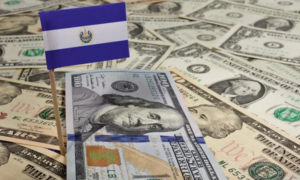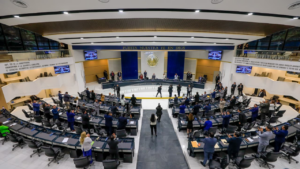The global trade war is intensifying with the implementation of new “reciprocal” tariffs pushed by President Donald Trump. This measure, which took effect at midnight, materializes the threats the president had postponed and intensifies the economic tensions that have characterized his administration. The new tariffs affect most of the United States’ trading partners.

The tariffs went into effect both for countries with which Washington has reached agreements, such as the United Kingdom, China, the European Union, Japan, and South Korea, and for those with which no agreement was reached. Countries such as India, Switzerland, South Africa, and Venezuela now face trade barriers unilaterally imposed by the Trump administration. This move seeks to reduce the United States’ trade deficit.
According to the president, the imposition of these new tariffs is a response to the “large” trade deficit the United States maintains with many of its allies. The strategy has forced many nations to negotiate with Washington to obtain a tariff reduction. The tariff plan was signed by Trump on july 31, just after the truce on trade negotiations ended.

President Trump had postponed the implementation of most tariffs for a week, a decision that allowed some countries to attempt a final agreement. However, in his executive order, he announced the amounts he would charge to dozens of trading partners with whom he failed to reach an agreement.
Meanwhile, Mexico obtained a 90-day extension to continue negotiations, avoiding the immediate implementation of new tariffs. Canada saw its tariffs rise from 25% to 35% starting august 1. These cases demonstrate the selective and strategic nature of Trump’s trade policy.

Other nations face even harsher measures. Brazil was hit with a 50% tariff in retaliation for the “unfair” treatment of its ally, former President Jair Bolsonaro. India, meanwhile, not only faces a 25% tariff but will also be hit with an additional 25% tariff in 21 days. This further escalation of the trade war could have far-reaching consequences for the global economy.







